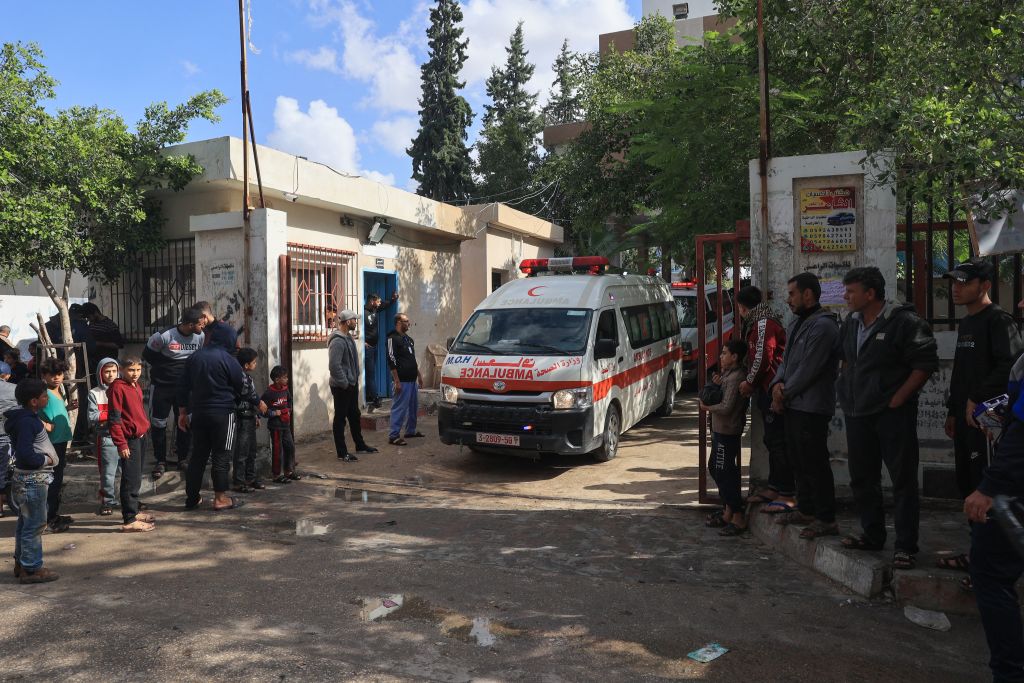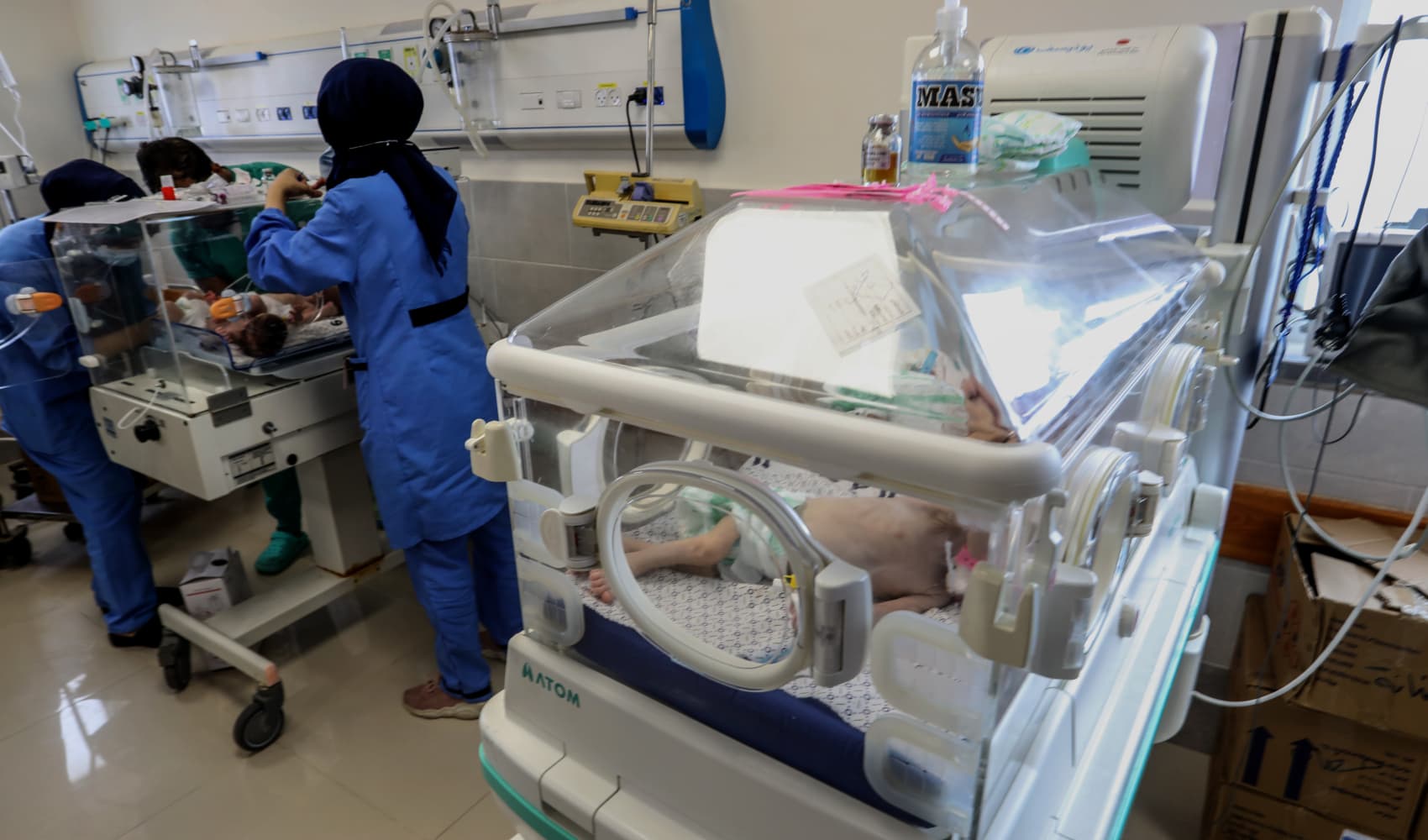
Israeli troops battled Palestinian militants in a dense, urban refugee camp on Tuesday as they expanded operations across northern Gaza, where residents have been without electricity, water or access to humanitarian aid for weeks.
The front line of the war, now in its seventh week, has shifted to the Jabaliya camp, a dense warren of concrete buildings near Gaza City that houses refugees from the 1948 war surrounding Israel's creation and their descendants. Israel has been bombarding the area for weeks, and the military said Hamas fighters have regrouped there and in other eastern districts after being pushed out of much of Gaza City.
Watch NBC6 free wherever you are
>Rear Adm. Daniel Hagari, an Israeli military spokesman, said late Monday that Israeli forces had a “full grasp” on Jabaliya and were starting to dismantle a Hamas brigade there. It was not possible to independently confirm details of the fighting.
The war sparked by Hamas' surprise Oct. 7 attack into Israel has exacted a heavy toll on Palestinian civilians, particularly those who remain in the north after Israel repeatedly called on people to flee south. Israeli forces cut off the north in their ground invasion late last month, though tens of thousands have since fled south through corridors announced by the military.
Get local news you need to know to start your day with NBC 6's News Headlines newsletter.
>It's unclear how many people remain in the north, but the U.N. agency for Palestinian refugees estimates that some 160,000 people are still in its shelters there, even though it is no longer able to provide services. Some 1.7 million Palestinians, about three-fourths of Gaza's population, have fled their homes.
Hundreds of thousands of people have packed into U.N.-run schools and other facilities across southern Gaza that now serve as shelters. As they have overflowed, people have been forced to sleep on the streets outside, with little shelter from winter rains that have hit the region in recent days.
Across Gaza, there are shortages of food, water and fuel for generators to power basic infrastructure. There has been a territory-wide blackout since Israel cut off fuel imports at the start of the war.
Israel continues to strike what it says are militant targets across Gaza, including in the southern evacuation zone, often killing women and children, and officials have said it may soon expand its operations in the south.
FIGHTING AROUND HOSPITALS
Tens of thousands of Palestinians in the north had sheltered in hospitals, but those have steadily been emptied out as the fighting has reached their gates, and most are no longer operational.
Marwan Abdallah, a medical worker at the Indonesian hospital near Jabaliya, said heavy fighting outside its gates on Tuesday prevented ambulances from bringing wounded people in for treatment. “The situation is worsening hour by hour," he said.
Palestinian officials said an Israeli shell struck the hospital early Monday, killing 12 people. Israel denied shelling the hospital, but said its troops returned fire on militants who targeted them from inside the 3.5-acre (1.4 hectare) compound.
Health Ministry spokesperson Ashraf al-Qidra said roughly 200 wounded patients and their companions were evacuated from the hospital to southern Gaza on Monday in a rescue effort coordinated by the U.N. and the International Committee for the Red Cross.
Between 400 and 500 wounded remain at Indonesia Hospital, Ashraf told Al-Jazeera television. Some 2,000 displaced Palestinians also are sheltering there.
A similar standoff played out in recent days at Shifa Hospital, Gaza's largest, which has been at the heart of warring narratives over Hamas' alleged use of civilian infrastructure. Israel has provided some evidence in recent days of a militant presence at the hospital but has yet to substantiate its claims that Hamas had a major command center beneath the facility.
Hamas and hospital staff have denied the Israeli allegations. Health workers say scores of critically ill and wounded patients as well as medics are still stranded at Shifa after 31 premature babies were successfully evacuated to hospitals in Egypt and southern Gaza. Israeli forces entered the hospital last week after days of heavy battles outside its gates.
Michael Ryan, a senior World Health Organization official, said Monday that care for complex medical cases – including most cancer and kidney dialysis patients – is no longer available in Gaza and that remaining hospitals would likely be overwhelmed by some 5,500 births expected in the next month.
“The hospital situation – the primary health care system situation – in Gaza is catastrophic and it is the worst you can imagine (in the) north," he said.
RISING TOLL
More than 12,700 Palestinians have been killed in Gaza, according to the Palestinian Health Ministry in the West Bank. Officials there say another 4,000 are missing. Their counts do not differentiate between civilians and combatants. Israel says it has killed thousands of militants.
The Palestinian Health Ministry bases its count on information gathered by its counterpart in Hamas-ruled Gaza, which has been unable to fully update casualty figures for more than 10 days because of the breakdown in services and communications in the north.
About 1,200 people have been killed on the Israeli side, mainly civilians during the Oct. 7 attack, in which Hamas dragged some 240 captives back into Gaza. The military says 68 Israeli soldiers have been killed in Gaza ground operations.
TALKS ON HOSTAGE RELEASES
Israel, the United States and Qatar, which mediates with Hamas, have been negotiating for weeks over a hostage release that would be paired with a temporary cease-fire and the entry of more humanitarian aid.
Hamas has released four hostages, Israel has rescued one, and the bodies of two were found near Shifa.
Izzat Rishq, a senior Hamas official, said Tuesday that an agreement could be reached “in the coming hours," in which Hamas would release captives and Israel would release Palestinian prisoners. Hamas' leader in exile Ismail Haniyeh also said they were close to a deal, but similar predictions in recent weeks have proven premature.
Israel's three-member war Cabinet met with representatives of the hostages’ families Monday evening. A relative of a hostage said the officials, including Prime Minister Benjamin Netanyahu, told families the government considers the release of hostages and the defeat of Hamas to be “equally important.”
Udi Goren, whose cousin Tal Chaimi is in captivity in Gaza, said that was “incredibly disappointing" for the families, as Israel has said it could take months to dismantle the militant group.
“We will not stop fighting until we bring the hostages home, destroy Hamas and ensure that there is no more of a threat from Gaza,” Netanyahu said on social media after the meeting.
___
Magdy reported from Cairo. Associated Press writer Melanie Lidman in Jerusalem contributed.



